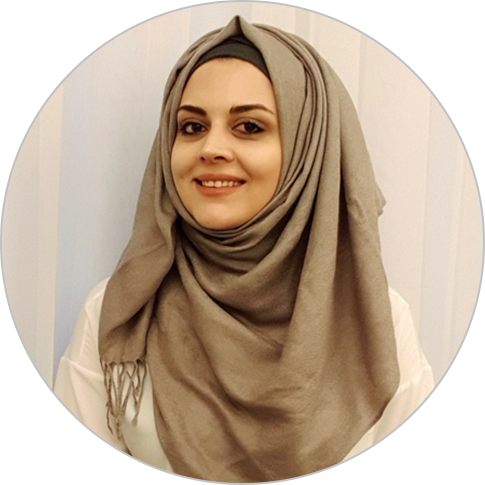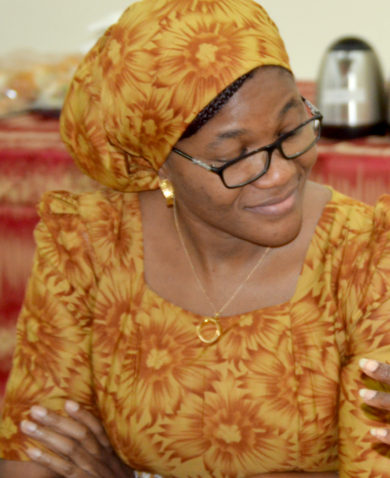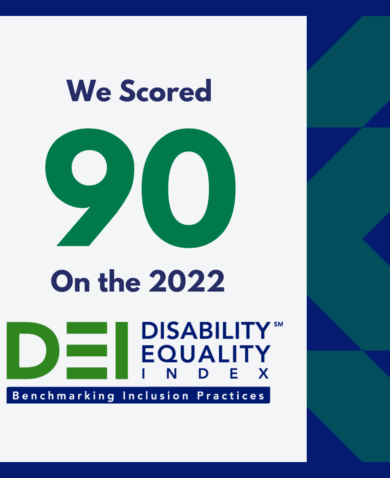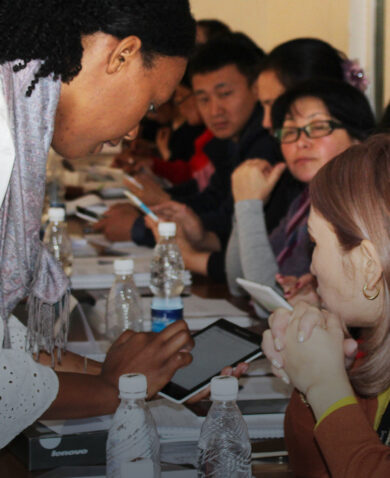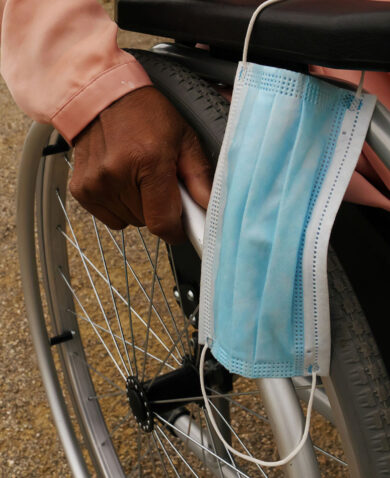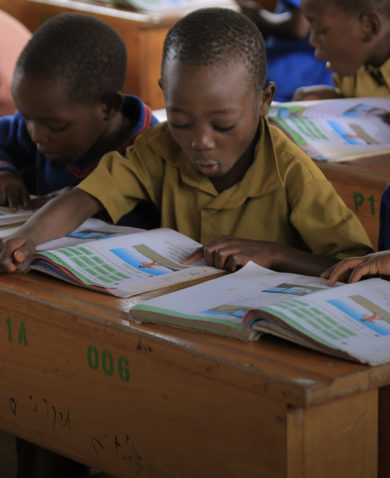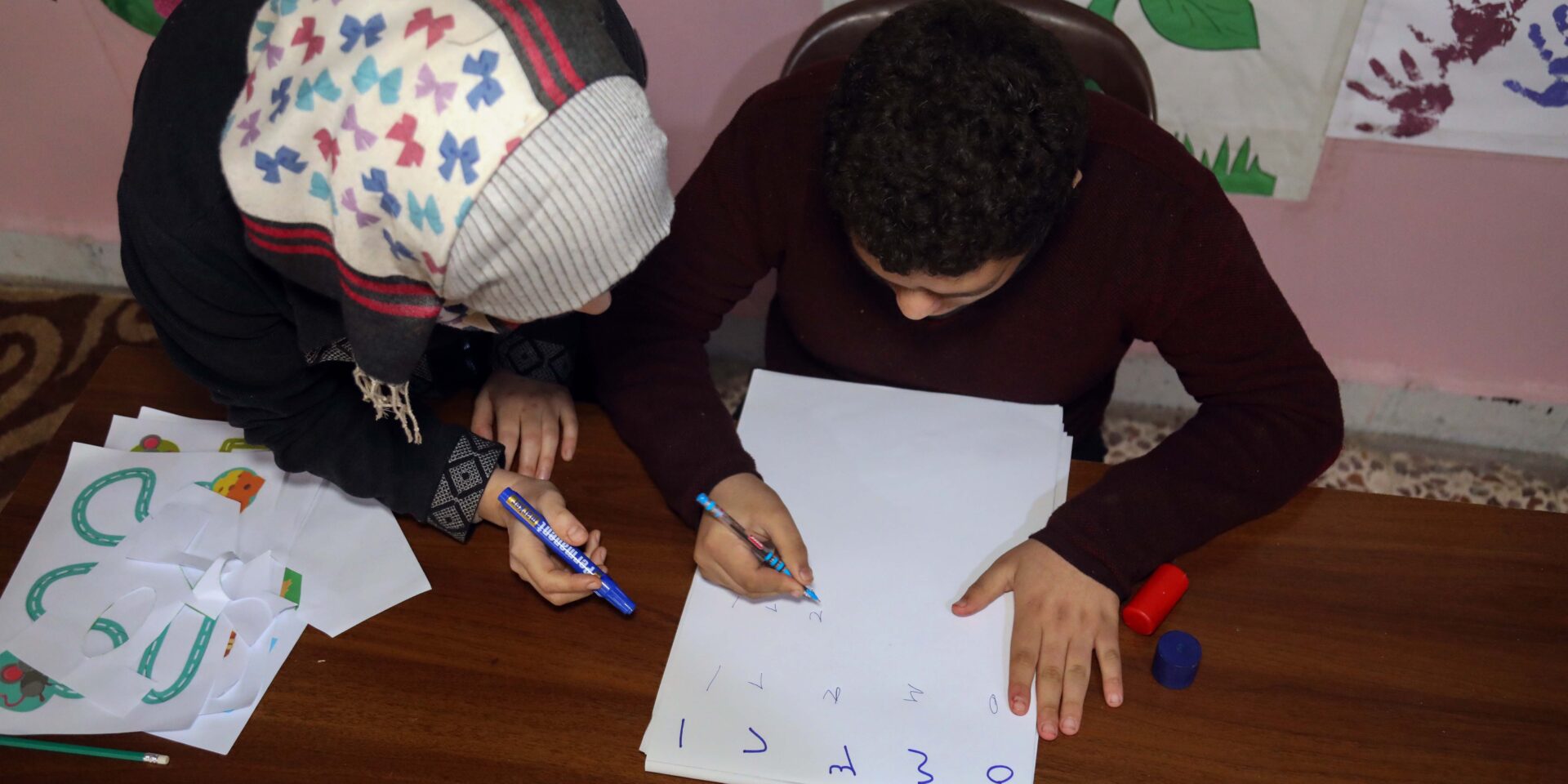
A Syria Education Programme Success Story: Meet Salma
December 13, 2022 | 4 Minute ReadMeet Salma. Salma is a member of the Founding and Elections Committee of the Association of Parents of Children with Disabilities at a special education facility, supported by The Syria Education Programme (also known as Manahel).
Salma, a university student, cares for her autistic and hyperactive 11-year-old brother, Rami, who has been diagnosed with ADHD (attention deficit hyperactivity disorder). Rami struggled to learn at first; he could not read or even hold a pen. He could say no more than a few words and displayed a variety of impulsive mood changes along with surges of anger and extreme frustration under stress. He attended a school for students with autism where there are larger class sizes, and teachers often lack the skill set to support students requiring extra assistance. However, Salma remained his staunch supporter and champion.
Salma heard from neighbours that a special education facility, supported by Manahel, had opened in autumn 2021. Children are taught in a classroom alongside children without disabilities, while receiving special services in a resource room. “We learned that the school next door had established a facility for students with disabilities, where teachers were trained on how to support and provided individualised lessons and education plans. We were overjoyed at the news since it meant Rami would be able to attend school like the rest of his peers. We started to witness clear progress in Rami’s performance after two months of his attendance and commitment to the school program, as now he can read and write letters and numbers perfectly“, she said.
Salma was taken aback by the considerable change in Rami’s condition. She grew motivated and hopeful that a larger number of children with disabilities would benefit from these services. Rami’s new school provided the ideal atmosphere for the children, and saw value in including parents and caregivers in regular meetings and dialogue. The meetings aimed at examining the needs of a variety of children with different abilities, and serve as a think-tank for developing solutions that are both supportive and assist the integration of a diversity of students with their peers. While these meetings were beneficial in designing a child’s individual education plan and monitoring the child’s development at home, they were less useful in offering insight into whether current strategies and instruction are helping the child learn and provide suggestions for change and improvement.
“Even though there is a high need for such specialised services in our communities, most schools do not provide them, and it is even worse when parents are not involved as they provide information on the child’s strengths and challenges at home, background information on the child’s history and development, and information on any family factors that may affect the child’s learning”, stated Salma. Thus, Salma and other active parents and caregivers decided to support the formation of an association which was created and supported by Manahel – the Association of Parents of Children with Disabilities. Through their recognition of the critical role they hold in their child’s development, and understanding the need for space to influence policies, members – both parents and caregivers – were elected to leadership roles and advocated to key actors in the education sector, bringing attention to services that would benefit children like Rami.
With reluctance Salma attended the first meeting, fearing that nothing positive would come of it. She said, “I assumed that when they asked me to the first meeting to join the association, it would be like other similar events, where everyone chats and then goes to his home with no beneficial or practical actions taken”.
Salma, however, was overjoyed with one of the association’s first sessions, stating, “I was surprised that the meeting was well-organized and productive, and we came away with tangible results”.
After the association’s concept had been solidified, affected parents and caregivers were invited to vote in a transparent election to help form the association. Each parent and caregiver was given the opportunity to run for the association’s Board of Directors. More than 40 parents and caregivers across two cities in NW Syria voted in the elections, and the association’s Board of Directors was officially elected, with seven people – five being women – serving on the Board.
For the first time, Salma and her fellow members were actively involved in the educational decision- making process, fiercely advocating for the families and children who face barriers to traditional learning. They were well prepared for the discussions, having spoken with the families, as well as the children, to establish priorities and prioritise the most critical issues.
Salma and her fellow members were instrumental in the development of special education strategic goals, indicators, initiatives, and the second-semester plan. “I felt proud to be in a position where I can make difference in the lives of thousands of children with disabilities by assisting them in achieving their right to a high-quality, inclusive education”, said Salma.
Salma and other members of the association will continue to fight for the rights of children with disabilities, ensuring that policies widening inclusive practices are in place in the Education Directorate (ED), as well as providing students with disabilities with a safe environment for learning and integration with their peers.
In the coming months, Salma will take part in the development of the ED’s strategic plan to ensure that it considers the needs of children with disabilities and aims to improve their learning results and psychological resilience. Policy creation for children with disabilities and ensuring that these policies are implemented in all schools will also take place. Salma will also contribute to the development of a common school delivery standard so that every child with a disability, regardless of whether they reside in an urban or rural community, has access to high-quality education opportunities in an inclusive and secure setting.
Banner image caption: A teacher and student at a special education facility, supported by Manahel. The photo was taken by a team member of the Syria Education Programme.
Disclaimer
In order to protect the individuals involved in the Syria Education Programme, all names of people and locations have either been altered or removed, as has any information that may identify people or locations.
The Syria Education Programme (also known as Manahel) is funded by UK aid from the UK government and implemented by Chemonics International. Manahel provides access to safe, inclusive, and quality learning opportunities to children in Syria whilst strengthening education actors to manage education effectively.

